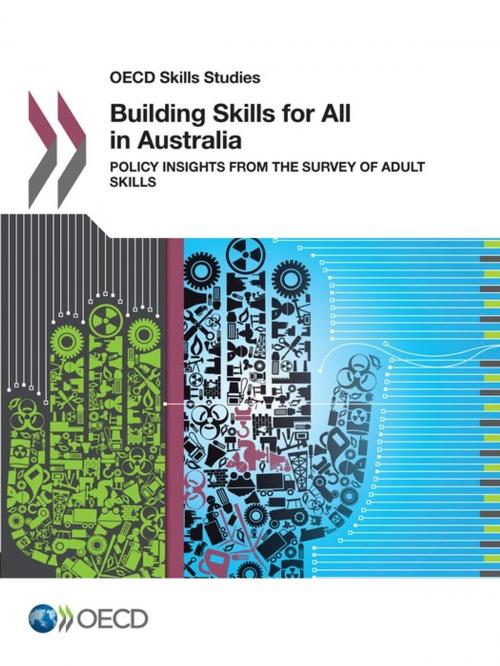Building Skills for All in Australia
Policy Insights from the Survey of Adult Skills
Business & Finance, Business Reference, Education| Author: | Collectif | ISBN: | 9789264284203 |
| Publisher: | OECD | Publication: | October 7, 2017 |
| Imprint: | OECD | Language: | English |
| Author: | Collectif |
| ISBN: | 9789264284203 |
| Publisher: | OECD |
| Publication: | October 7, 2017 |
| Imprint: | OECD |
| Language: | English |
Australia’s overall performance in the Survey of Adult Skills (PIAAC) ranges from average to very good. However, three million adults, representing one-fifth of the working age population, have low literacy and/or numeracy skills. Building Skills for All in Australia describes the characteristics of the low-skilled and discusses the consequences that low skills have on economic and social development for both individuals and Australian society. The review examines the strengths of the Australian skills system, highlighting the strong basic skills found in the migrant population, widespread proficiency in use of ICT and the positive role of workplaces in skills development. The study explores, moreover, the challenges facing the skills system and what can be done to enhance basic skills through education, training or other workplace measures. One of a series of studies on low basic skills, the review presents new analyses of PIAAC data and concludes with a series of policy recommendations. These include: increasing participation of women in STEM fields, addressing underperformance of post-secondary VET students and preventing drop-out, improving pre-apprenticeships, enhancing mathematics provision within secondary education and tackling poor access to childcare facilities for young mothers.
Australia’s overall performance in the Survey of Adult Skills (PIAAC) ranges from average to very good. However, three million adults, representing one-fifth of the working age population, have low literacy and/or numeracy skills. Building Skills for All in Australia describes the characteristics of the low-skilled and discusses the consequences that low skills have on economic and social development for both individuals and Australian society. The review examines the strengths of the Australian skills system, highlighting the strong basic skills found in the migrant population, widespread proficiency in use of ICT and the positive role of workplaces in skills development. The study explores, moreover, the challenges facing the skills system and what can be done to enhance basic skills through education, training or other workplace measures. One of a series of studies on low basic skills, the review presents new analyses of PIAAC data and concludes with a series of policy recommendations. These include: increasing participation of women in STEM fields, addressing underperformance of post-secondary VET students and preventing drop-out, improving pre-apprenticeships, enhancing mathematics provision within secondary education and tackling poor access to childcare facilities for young mothers.















